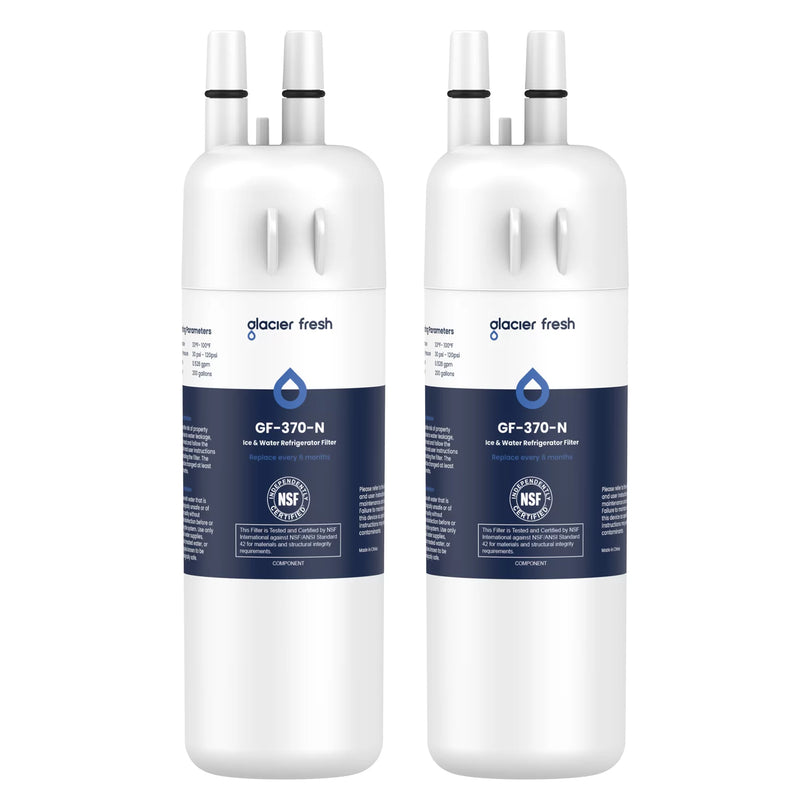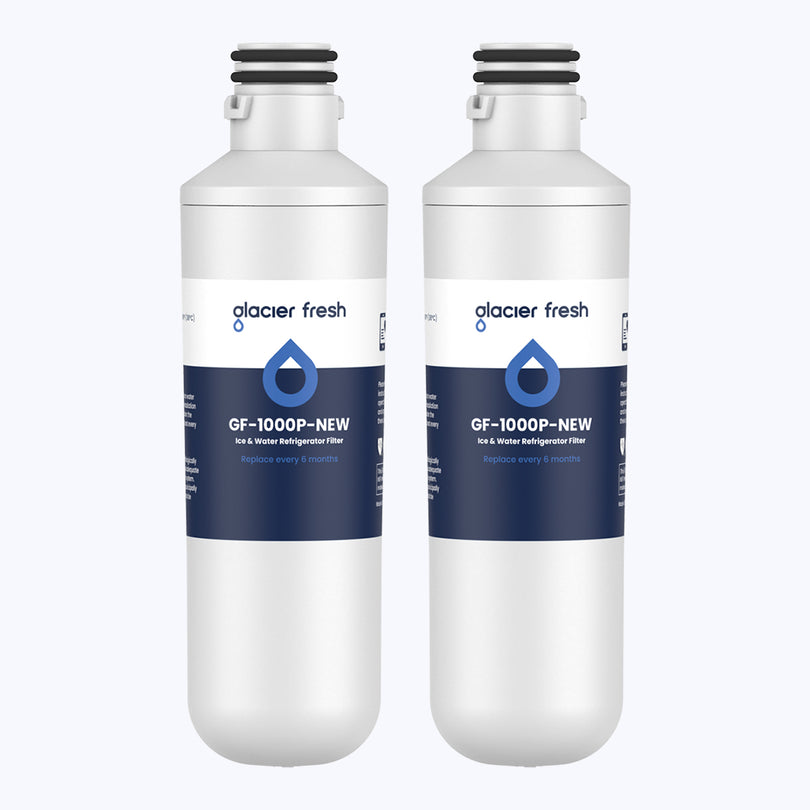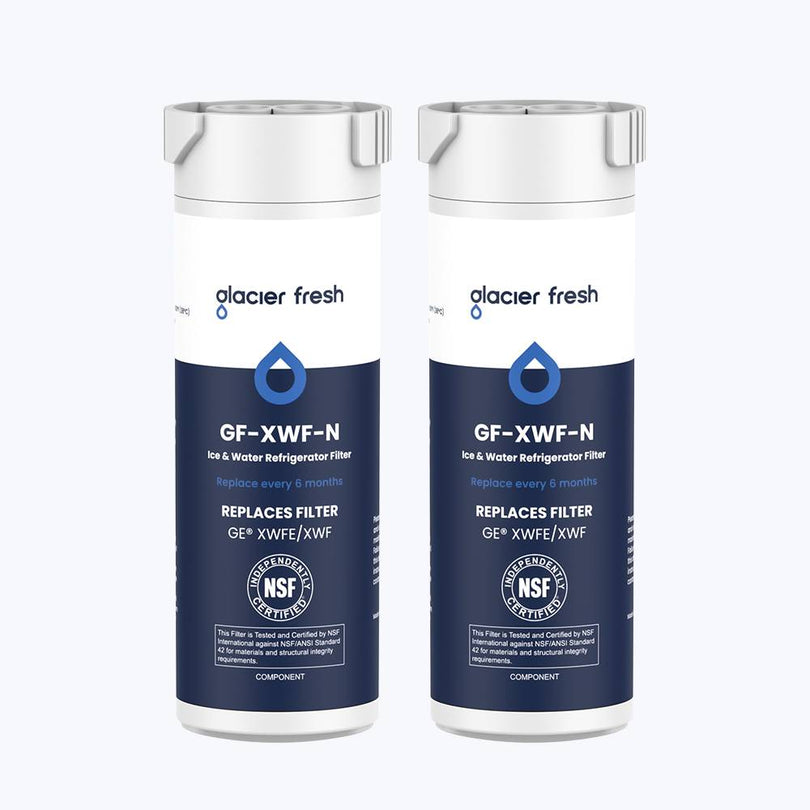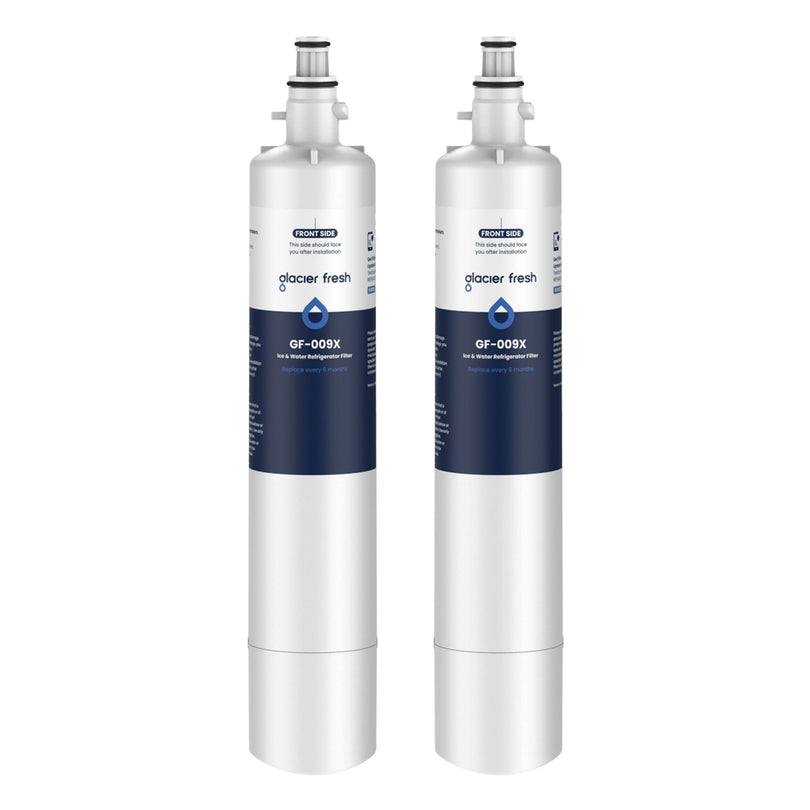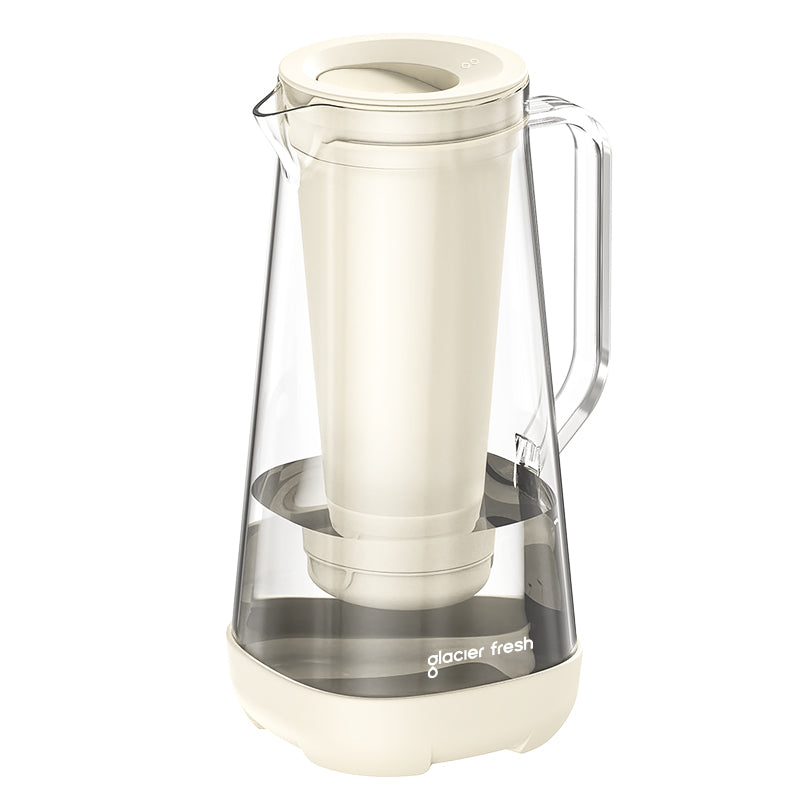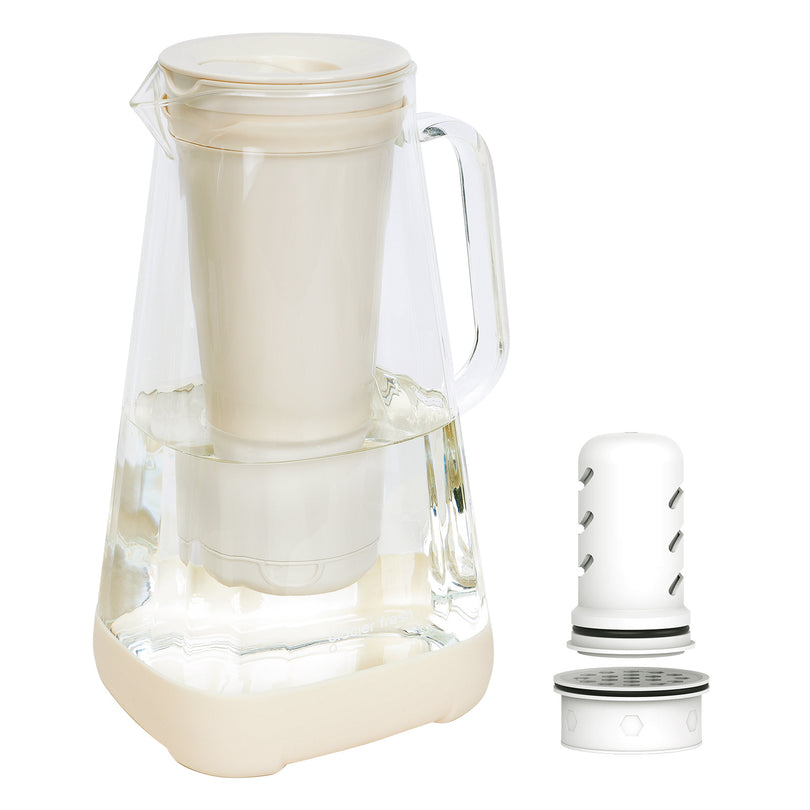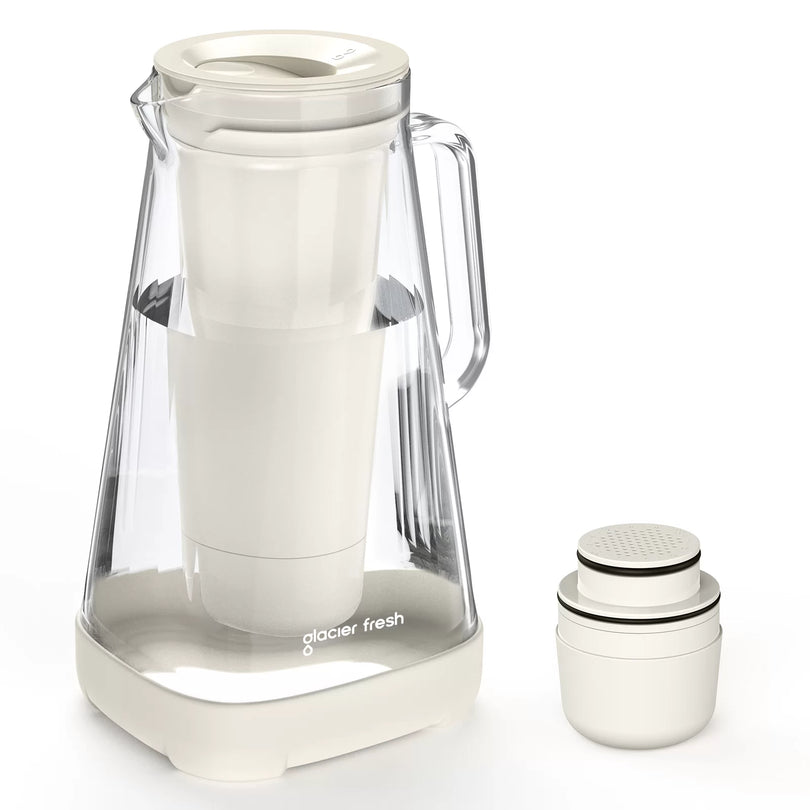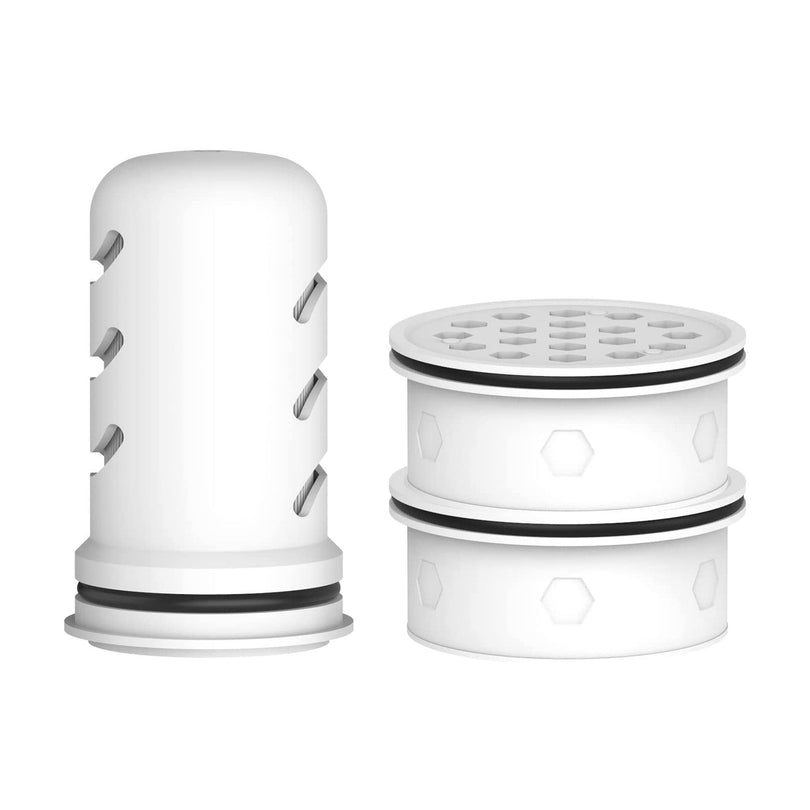Table of Contents:
Vorteile einer ausreichenden Flüssigkeitszufuhr
Anzeichen von Dehydration
Faktoren, die Ihren täglichen Wasserbedarf beeinflussen
Empfohlene tägliche Wasseraufnahme für verschiedene Altersgruppen
Tipps zum Erreichen Ihrer täglichen Wasserziele
FAQs
Abschluss
Sie kennen wahrscheinlich die alte Regel: Trinken Sie täglich acht Gläser Wasser. Aber ist das wirklich die Menge, die Sie brauchen? Die Antwort könnte komplexer sein. Ihre tägliche Wasseraufnahme hängt von verschiedenen Faktoren ab, darunter Ihrem allgemeinen Gesundheitszustand, Ihrem Aktivitätsniveau und Ihrem Wohnort. Ausreichend Flüssigkeitszufuhr ist für Ihre Gesundheit und Ihr Wohlbefinden unerlässlich. Aber was bedeutet das?
In diesem Artikel gehen wir auf die Vorteile der Flüssigkeitszufuhr, die Anzeichen von Dehydration und die Faktoren ein, die Ihren täglichen Wasserbedarf beeinflussen. Außerdem geben wir Ihnen einige praktische Tipps, wie Sie Ihre Flüssigkeitsziele erreichen. Egal, ob Sie Fitness-Enthusiast, vielbeschäftigter Berufstätiger oder an Ihrer Gesundheit interessiert sind – dieser Leitfaden hilft Ihnen zu verstehen, wie viel Wasser Sie täglich trinken sollten. Bevor Sie also Ihre Wasserflasche wieder auffüllen, lassen Sie uns Ihren Wissensdurst über Ihre tägliche Wasseraufnahme stillen.
Vorteile einer ausreichenden Flüssigkeitszufuhr

Sie werden eine deutliche Verbesserung Ihrer körperlichen und geistigen Gesundheit feststellen, wenn Sie ausreichend trinken. Unterschätzen Sie also nicht, wie wichtig es ist, täglich ausreichend Wasser zu trinken. Die Vorteile einer ausreichenden Flüssigkeitszufuhr sind vielfältig und Wasser spielt eine wichtige Rolle für Ihr allgemeines Wohlbefinden. Wasser spielt in Ihrem Körper eine essenzielle Rolle. Es transportiert Nährstoffe und Sauerstoff zu Ihren Zellen, unterstützt die Verdauung durch die Bildung von Magensekreten und hält Mund, Augen und Nase durch die Schleimproduktion feucht. Eine ausreichende Flüssigkeitszufuhr bedeutet auch, dass Ihr Körper seine Temperatur besser regulieren, Gelenke schmieren und Abfallprodukte und Bakterien ausspülen kann.
Auch die Feuchtigkeitsversorgung der Haut ist wichtig, wenn Sie ausreichend Wasser trinken. Es trägt zur Erhaltung der Elastizität bei, reduziert Fältchen und verleiht Ihrer Haut einen gesunden, strahlenden Glanz. Doch die Vorteile beschränken sich nicht nur auf Ihre Haut. Wasser spielt auch eine entscheidende Rolle bei der Verbesserung der Verdauung, indem es die Zersetzung von Nahrung und die Aufnahme von Nährstoffen unterstützt.
Außerdem trägt es dazu bei, den Stoffwechsel anzukurbeln, Kalorien zu verbrennen und ein gesundes Gewicht zu halten. Erhöhen Sie also Ihre tägliche Wasseraufnahme. Ihr Körper und Geist werden es Ihnen danken, und Sie werden sich wahrscheinlich energiegeladener, konzentrierter und insgesamt gesünder fühlen. Trinken Sie!
Anzeichen von Dehydration
Wenn Sie sich benommen oder schwindlig fühlen, kann Ihr Körper Anzeichen einer Dehydration zeigen. Die Symptome einer Dehydration können unterschiedlich sein, häufig sind jedoch Mundtrockenheit, Müdigkeit und Schwindel. Zu den schwerwiegenderen Symptomen können Verwirrtheit, Herzrasen oder Ohnmacht gehören. Diese Symptome deuten auf einen dringenden Flüssigkeitsbedarf Ihres Körpers hin und unterstreichen, wie wichtig eine ausreichende Flüssigkeitszufuhr für reibungslose Körperfunktionen ist. Das Ignorieren dieser Anzeichen kann zu weitaus schwerwiegenderen Dehydrationsfolgen führen als nur ein leichtes Unwohlsein. Chronische Dehydration kann sich negativ auf Nieren, Herz und Gehirn auswirken. Sie kann zu Nierensteinen, Bluthochdruck und kognitivem Abbau führen. Deshalb ist es so wichtig, einer Dehydration vorzubeugen.

Ausreichend Flüssigkeit zu sich zu nehmen bedeutet nicht, nur zu trinken, wenn man Durst hat. Dann kann eine Dehydration bereits einsetzen. Trinken Sie täglich mindestens 8 Tassen Wasser. Bedenken Sie jedoch, dass Sie bei körperlicher Betätigung oder in einem heißen Klima möglicherweise mehr benötigen. Bei schwerer Dehydration können orale Rehydratationssalze oder sogar intravenöse Flüssigkeitszufuhr zur Behandlung beitragen. Suchen Sie bei schweren Symptomen immer einen Arzt auf. Halten Sie Ihre Wasserflasche griffbereit und löschen Sie Ihren Durst, bevor er auftritt.
Faktoren, die Ihren täglichen Wasserbedarf beeinflussen
Klimaeinfluss
Das Klima, in dem Sie leben, kann Ihre tägliche Wasseraufnahme beeinflussen. Wettereinflüsse, Umwelteinflüsse und saisonale Schwankungen bestimmen, wie viel Wasser Sie trinken müssen. In heißen und feuchten Klimazonen schwitzen Sie stärker, was bedeutet, dass Sie mehr Wasser verlieren und mehr trinken müssen, um hydriert zu bleiben. Höhenlagen wirken zudem austrocknend auf Ihren Körper und verursachen einen erhöhten Wasserverlust durch die Atmung.
Darüber hinaus können die Umwelteinflüsse Ihrer Umgebung Ihren Wasserbedarf beeinflussen. Wenn Sie beispielsweise in einer Wüstenregion leben, müssen Sie möglicherweise mehr Wasser trinken, um den Feuchtigkeitsmangel in der Luft auszugleichen. Auch jahreszeitliche Schwankungen, wie heiße Sommer oder kalte Winter, können den Wasserbedarf beeinflussen. Daher ist es wichtig, bei der Bestimmung Ihrer täglichen Wasseraufnahme Ihr Klima zu berücksichtigen.
Körperliche Aktivität

Bewegen Sie sich und lassen Sie Ihren Körper schwitzen, denn wenn Sie aktiv sind, benötigen Sie noch mehr Flüssigkeit, um Ihr intensives Training durchzuhalten! Die Trainingsintensität spielt eine wichtige Rolle bei der Bestimmung der Wassermenge, die Sie während des Trainings trinken sollten. Je intensiver Ihr Training, desto mehr schwitzen Sie und desto mehr Wasser verliert Ihr Körper. Die Flüssigkeitszufuhr während des Trainings ist entscheidend, um Ihre Leistung aufrechtzuerhalten und Dehydrierung zu vermeiden.
Achten Sie darauf, vor, während und nach dem Training Wasser zu trinken, um den Flüssigkeitsverlust auszugleichen. Eine ausreichende Flüssigkeitszufuhr unterstützt auch die Muskelregeneration. Wasser transportiert Nährstoffe zu Ihren Muskeln, die für deren Reparatur und Wiederaufbau nach einem anstrengenden Training unerlässlich sind. Machen Sie es sich daher zur Gewohnheit, während Ihrer körperlichen Aktivitäten eine Wasserflasche griffbereit zu haben, um ausreichend Flüssigkeit zu haben und die Muskelregeneration zu unterstützen.
Diätetische
Achten Sie darauf, nährstoffreiche Lebensmittel in Ihre Ernährung zu integrieren, um Ihre Gesundheit und Ihr Wohlbefinden zu fördern. Was die Flüssigkeitszufuhr betrifft, ist es wichtig zu verstehen, wie wichtig sie für einen gesunden Lebensstil ist. Ausreichende Flüssigkeitszufuhr hilft, die Körpertemperatur zu regulieren, die Gelenke zu schmieren und spielt eine entscheidende Rolle beim Abnehmen. Viel Wasser zu trinken kann zu einem Sättigungsgefühl beitragen und den Drang zum Überessen reduzieren.
Eine ausreichende Flüssigkeitszufuhr kann die Hautgesundheit verbessern und für ein jugendliches und strahlendes Aussehen sorgen. Trinken Sie täglich mindestens acht Gläser Wasser, um ausreichend Flüssigkeit zu sich zu nehmen. Denken Sie daran, dass auch andere Flüssigkeitsquellen wie Obst und Gemüse zu Ihrer täglichen Wasseraufnahme beitragen. Sorgen Sie für ausreichend Flüssigkeitszufuhr und profitieren Sie von einem gut ernährten Körper.
Gesundheitszustand
Nachdem wir nun die Bedeutung einer gesunden Ernährung besprochen haben, wollen wir uns mit den verschiedenen gesundheitlichen Problemen befassen, die Ihre tägliche Wasseraufnahme beeinflussen können. Es ist wichtig zu verstehen, wie bestimmte Erkrankungen Ihren Flüssigkeitshaushalt beeinflussen und das Risiko einer Dehydration erhöhen können. Einige Gesundheitsrisiken, wie Diabetes und Nierenerkrankungen, können zu einem schnelleren Wasserverlust führen. Daher ist es wichtig, über den Tag verteilt ausreichend Flüssigkeit zu trinken.
Darüber hinaus können bestimmte Medikamente, wie Diuretika, zur Dehydration beitragen. Wenn Sie sich dieser Faktoren bewusst sind und sie berücksichtigen, können Sie Ihre tägliche Wasseraufnahme besser steuern und einer Dehydration vorbeugen. Denken Sie daran: Eine ausreichende Flüssigkeitszufuhr fördert die allgemeine Gesundheit und kann dazu beitragen, die negativen Auswirkungen verschiedener Erkrankungen zu mildern.
Empfohlene tägliche Wasseraufnahme für verschiedene Altersgruppen
Haben Sie sich schon einmal gefragt, wie viele Gläser Sie in verschiedenen Lebensphasen trinken sollten? Die altersabhängige Flüssigkeitszufuhr ist entscheidend für die allgemeine Gesundheit und das Wohlbefinden. Es ist kein Geheimnis, dass Wasser eine wichtige Rolle in unserem Körper spielt, aber die benötigte Menge kann je nach Alter, Lebensstil und körperlicher Verfassung variieren.

Beginnen wir mit der Flüssigkeitszufuhr von Kindern. Kleinkinder und junge Kinder sollten täglich etwa 5 bis 8 Tassen Wasser trinken. Es ist wichtig, dass sie ausreichend Flüssigkeit zu sich nehmen, insbesondere bei körperlicher Aktivität. Als nächstes kommen Teenager. Sie sollten ihre Trinkmenge je nach körperlicher Aktivität leicht auf etwa 8 bis 11 Tassen pro Tag erhöhen. Am anderen Ende des Altersspektrums könnte Sie die Trinkmenge von Senioren überraschen. Trotz eines reduzierten Stoffwechsels sollten ältere Erwachsene täglich 7 bis 10 Tassen trinken, um ihre Gesundheit zu unterstützen und Dehydrierung vorzubeugen.
Vergessen wir nicht den besonderen Flüssigkeitsbedarf während der Schwangerschaft. Werdende Mütter sollten täglich mindestens 10 Tassen Wasser trinken. Sie müssen ausreichend Flüssigkeit zu sich nehmen, um das wachsende Baby zu unterstützen. Hier ist also eine kurze Anleitung zu Ihrem Flüssigkeitsbedarf in verschiedenen Lebensphasen. Beachten Sie, dass es sich hierbei um allgemeine Empfehlungen handelt und der individuelle Bedarf variieren kann.
Tipps zum Erreichen Ihrer täglichen Wasserziele

Integrieren Sie diese einfachen Tipps in Ihren Alltag, um sicherzustellen, dass Sie Ihre täglichen Wasserziele erreichen. Eine ausreichende Flüssigkeitszufuhr ist entscheidend für Ihre allgemeine Gesundheit und Ihr Wohlbefinden.
Tragen Sie Ihre Flasche überall hin mit
Tragen Sie Ihre Wasserflasche oder einen Wasserfilterkrug aus Glas immer bei sich, denn sie ist wichtig für eine optimale Flüssigkeitszufuhr über den Tag hinweg. Mit der Wasserflasche in der Hand können Sie Ihre Wasseraufnahme leicht verfolgen und sicherstellen, dass Sie Ihre täglichen Ziele erreichen.
Stellen Sie Erinnerungen ein, um ausreichend zu trinken
Lassen Sie sich Ihren Tag nicht durch Dehydration verderben. Setzen Sie sich Erinnerungen, um den ganzen Tag über ausreichend zu trinken. Man ist schnell im hektischen Alltag versunken und muss daran denken, genug Wasser zu trinken. Indem Sie sich Trinkziele setzen und sich daran erinnern, regelmäßig Wasser zu trinken, können Sie sicherstellen, dass Sie ausreichend trinken und die zahlreichen Vorteile des Wassertrinkens nutzen.
Betonen Sie die Bedeutung der Flüssigkeitszufuhr
Denken Sie daran, dass die Wasseraufnahme nicht nur zum Durstlöschen dient. Die richtige Flüssigkeitszufuhr ist entscheidend für Ihr allgemeines Wohlbefinden. Ausreichend Wasser zu trinken, kann Ihnen zahlreiche Vorteile bringen. Eine ausreichende Flüssigkeitszufuhr hilft, Ihre Körpertemperatur zu halten, unterstützt die Verdauung und fördert die Nährstoffaufnahme. Außerdem hält sie Ihre Gelenke geschmeidig und Ihre Haut strahlend.
Geben Sie Ihrem Trinkwasser Geschmack
Verfeinern Sie Ihr Wassererlebnis mit verschiedenen Aromen. Rezepte für aromatisiertes Wasser verleihen normalem Wasser eine köstliche Note und machen die Flüssigkeitszufuhr noch angenehmer. Aromatisiertes Wasser schmeckt nicht nur hervorragend, sondern bietet auch zahlreiche Vorteile. Durch die Zugabe von Obst, Kräutern oder Gemüse zum Wasser können Sie Ihre Vitaminzufuhr erhöhen und Ihr Immunsystem stärken. Beliebte Kombinationen für aromatisiertes Wasser sind Gurke und Minze, Zitrone und Ingwer sowie Wassermelone und Basilikum.
FAQs
Kann Trinkwasser zur Verbesserung der Hautgesundheit beitragen?
Trinkwasser kann die Gesundheit Ihrer Haut verbessern. Eine ausreichende Flüssigkeitszufuhr ist unerlässlich für einen gesunden Teint und die Vorbeugung von Akne. Wasser hilft, Giftstoffe aus dem Körper auszuschwemmen und trägt so zu einer reineren Haut bei. Es trägt außerdem dazu bei, Ihre Haut mit Feuchtigkeit zu versorgen und geschmeidig zu halten, was ihr ein strahlendes und jugendliches Aussehen verleiht. Um diese Vorteile zu erzielen, wird empfohlen, täglich ausreichend Wasser zu trinken.
Hilft das Trinken von Wasser beim Abnehmen?
Wassertrinken kann beim Abnehmen helfen. Eine erhöhte Wasseraufnahme kann Ihren Stoffwechsel ankurbeln und die Kalorienverbrennung erleichtern. Ausreichend Flüssigkeit hilft auch, Ihren Appetit zu kontrollieren und verringert die Gefahr von Überessen.
Wasser hat keine Kalorien und ist daher eine ausgezeichnete Wahl, um Ihren Durst zu löschen, ohne zusätzliche Kalorien aufzunehmen. Die Aufnahme von Wasser in Ihre Ernährung ist entscheidend für die Gewichtskontrolle und kann zu einem insgesamt gesünderen Lebensstil beitragen.
Kann das Trinken von ausreichend Wasser Nierensteinen vorbeugen?
Ausreichend Wasser zu trinken kann helfen, Nierensteinen vorzubeugen, indem es die Nierenfunktion aufrechterhält und das Risiko einer Nierenerkrankung verringert. Eine ausreichende Flüssigkeitszufuhr ist wichtig, um Harnwegsinfektionen (HWI) vorzubeugen, die zur Bildung von Nierensteinen beitragen können.
Viel Wasser zu trinken kann helfen, Abfallstoffe und Giftstoffe aus Ihren Nieren auszuspülen und sie gesund und funktionsfähig zu halten. Achten Sie daher auf ausreichende Flüssigkeitszufuhr, um Ihre Nieren zu schützen und Nierensteinen vorzubeugen.
Abschluss
Denken Sie abschließend daran, Ihre Flüssigkeitszufuhr zu priorisieren und Ihre täglichen Wasseraufnahmeziele zu erreichen. Eine ausreichende Flüssigkeitszufuhr hat zahlreiche Vorteile, wie z. B. eine verbesserte Verdauung, mehr Energie und eine verbesserte kognitive Funktion. Wenn Sie die Anzeichen von Dehydration kennen und die Faktoren verstehen, die Ihren Wasserbedarf beeinflussen, können Sie fundierte Entscheidungen darüber treffen, wie viel Wasser Sie täglich trinken sollten. Behalten Sie Ihre Wasseraufnahme mit Glacier Fresh im Auge und nutzen Sie diese Tipps, um ausreichend Flüssigkeit für optimale Gesundheit und Wohlbefinden zu erhalten.

